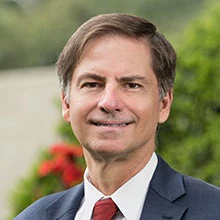 Daniel Goyo, migrante venezolano, en su academia de baile
Daniel Goyo, migrante venezolano, en su academia de baile
“We’re here to give our daughters a future,” said Karelis Mora. “We’re glad to be welcomed in this country,” added Mairenis. Both women are part of a group of Venezuelan migrants who I’ve had the pleasure to meet in a recent visit to Colombia.
I’ve heard from women who dream of a brighter future and how much they longed to make Colombia their new home under the government’s Temporary Protection Status for Venezuelan Migrants Initiative (TPS). TPS provides Venezuelans with legal immigration status and access to education, health, housing, and employment opportunities on equal terms with Colombians. This status is valid for 10 years and places Colombia among the first countries in the world to adopt a comprehensive public policy framework for the inclusion of migrants.
As the title of this blog suggests, this temporary protection status offers a future of opportunities for Colombia and the Venezuelan population it hosts, who have been forced to leave their country due to the harsh social and economic reality there.
We at the World Bank are proud to continue our support to Colombia’s efforts to integrate Venezuelan migrants. This includes support for the TPS with a US$500 million development policy loan. It’s the first of its kind centered exclusively on cross-border migration that focuses both on integrating migrants and their hosts and encourages long-term inclusion of migrant populations rather than short-term solutions. Our approach -compared to how migration and refugee crises have traditionally been responded to- is to recognize the importance of targeting emergency humanitarian assistance and more sustainable measures together, in a coherent and systematic way. The loan will include an additional $26.4 million grant from the Global Concessional Finance Facility (GCFF).
As a result, Colombia’s open-door policy is a paradigm shift in the global approach to mass migration flows. It gives renewed hope to migrants, contributing to the country´s economic growth while providing valuable lessons for the rest of the Latin America and the world.
Let us not forget that there are still several million Venezuelan migrants and refugees throughout the region who are facing uneven degrees of integration into their host communities. It’s our belief the benefits outweigh the challenges and other countries in the region could benefit from the Colombian experience.
Borders often conjure up images of barbed wire fences, arbitrary detention centers and unsympathetic security forces. By coming up with some of the world´s most progressive, innovative, and comprehensive solutions to mass migration, the Colombian government, rather than viewing the Venezuelan exodus as a threat, sees this phenomenon as an opportunity.
In the short term, this could mean increased state spending, of around half a percentage point of GDP per year. However, as Venezuelans are regularized and enter the labor force, economic growth could experience a boost of almost one percentage point in the medium to long term.
In other words, for every dollar that Colombia invests in the integration of its migrants, it can gain up two dollars of benefit to society.
Obviously, there are significant risks involved.
Some are economic, given the continuing uncertainty about the long-term effects of the COVID-19 pandemic. There are also political challenges: as in many other parts of the world and the region, some opinion leaders have been playing on the misplaced fears of locals about losing jobs or rising crime.
Fortunately, good sense has prevailed. Lest we forget, for years Venezuela welcomed vast numbers of Colombian migrants when it enjoyed an oil boom that created new job opportunities.
Colombia richly deserves the world’s support in its efforts to integrate Venezuelan migrants . The success of this laudable endeavor would allow a middle-income country to set a shining example of truly global significance.


Join the Conversation